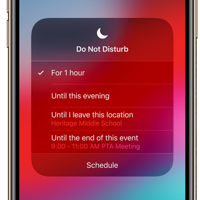Artemis Fowl MBTI -Persönlichkeitstyp
Persönlichkeit
"Welcher Persönlichkeitstyp ist {profilename}? {profilename} ist ein {MBTI} -Persönlichkeitstyp in MBTI, {enneagram} - {iv} - {tritype} in EnneArgram, {big5} in Big 5, {socionics} in Socionics."
Artemis is a classic INTJ, albeit with a surprisingly strong Fi even at the beginning of the series. He is the epitome of the “mastermind” archetype, repeatedly said—and shown—to be several steps ahead of his adversaries, reveling in the feeling of a clever scheme finally coming to fruition. His arrogance is usually what does him in, and his tendency to withhold key information from his allies until the plan is already quite far along creates friction with them, especially when he takes large gambles with their lives. This alone would not be enough to type him, though it offers the foundation for the initial assertion of his type. Combing through the early novels, his youthful NiTe arrogance comes through clearly, with a host of Se inferior moments. He has absolute faith in his own planning, brushing off setbacks as minor and completely manageable. Artemis stays focused on the big picture, the general shape of his plans, with details remaining subordinate to the grand vision. His style of planning is very much one of “setting pins up and knocking them down”. Even when things are going terribly wrong, Artemis consoles himself with thoughts that his strategy itself need not change. This sort of arrogance is shown quite well in the following passage from the first book: “After several moments’ contemplation, he realized that these factors meant little to the overall strategies of both sides. Captain Short was still trapped in the manor. And the time-stoppage period was running out. Soon the LEP would have no option but to launch their bio-bomb, and that was when Artemis Fowl would unveil his coup de grace. Of course, the whole thing depended on Commander Root. If Root was as intellectually challenged as he looked, it was quite possible the entire scheme would collapse around his ears. Artemis hoped fervently that someone on the fairy team had the wit to spot the blunder he’d made during the negotiation session.” Aretmis’ entire plan here hinges on his enemies being smart enough to pick up on his intentional mistake; this level of presumption is characteristic of Ni idealism. He wants this to go a certain way, so he will simply proceed as though reality will line up with his mental projections. Despite knowing the potential risks of such an approach, he continues as though it were the only possibility for success. Extremely Se inferior of him. Moreover, his approach to the bio-bomb threat indicates a dominant Ni. He has a hunch that remaining conscious is the only thing keeping them trapped in the time-stop. He is willing to bet their lives on this theory. “The fairies would pay up because they believed the gold would be theirs again as soon as he was dead. Vaporized by the bio-bomb. Which, of course, he wouldn’t be. In theory.” Although he was fortunate in that he had his mother, Angeline, to act as a test subject for this idea of his, it was still incredibly risky. Not to mention that his theory was borne from reading about San D’Klass, and there was little to nothing suggesting that changing one’s state of consciousness could allow one to escape from a time-stop. When explaining his reasoning to Butler, there’s this rather amusing passage: “Butler nodded. Things were getting clearer, in a roundabout sort of way.” Credit to Butler for being able to make sense, in the broadest terms, of Artemis’ indirect explanation for how his plan worked. Further evidence of Se inferior can be seen in the ways his enemies are able to blindside him. A good portion of Artemis’ internal dialogue is taken up by phrases such as “just as he suspected” or “all according to plan”. As soon as the world throws something at him that he had not anticipated, he goes into panic mode, feeling completely dumbfounded and even rendered speechless as in his business dealing with Jon Spiro. All Spiro had to do to elicit this sort of reaction is to act in a way that Artemis had not predicted. Artemis’ inability to adapt his approach—or even dialogue—in the moment screams Se inferior. However, this does not mean Artemis is completely unprepared for facing different potential scenarios. From the fourth book: “‘Is this going to work, Artemis?’ said Holly. Artemis pondered the question. ‘I considered eight plans, and this was the best one. Even so, we have a sixty-four per cent chance of success.’” According to Berens, Te “map contingency plans, breaking things into workable elements and steps in order to be sure things get done.” Along with Artemis’ Ni insights and ability to make the Se reality bend to the will of his ideal visions, he makes himself a formidable adversary in spite of his age. (1/3)
Biografie
Persönlichkeit correlate

Foaly

Holly Short

Domovoi Butler

Opal Koboi

Minerva Paradizo

Mulch Diggums

Commander Julius Root

Artemis Fowl Sr.
















